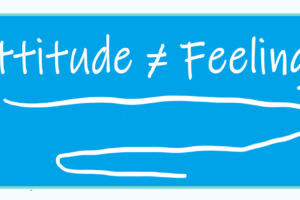Stressors
When you say, “I am so stressed out!”, you are probably referring to your emotional stress. It could be problems in your intimate relationship, financial difficulties or problems at work. But the focus is on how you are managing something in your life. Frequently your continued emotional stress can have an impact on your physical well-being. For example, when you are emotionally stressed you can be more susceptible to infections like the common cold or the flu.
There are four major categories of stressors in your life:
- Emotional Stress
- Mechanical Stress
- Moral Stress
- Chemical Stress
You may lead a life of emotional and moral balance, but if your environment is filled with mechanical stress and toxins (chemical stress), your life cannot be in harmony.
Emotional Stress
Emotional stress is also known as psychological or social stress. These are the day-to-day stressors you commonly think about when you think of stress. These are the stressors that can cause you to feel overwhelmed and under-appreciated. You may even feel guilty or responsible for emotional stress, for example, “If I was a more thoughtful partner”, “If I just worked harder, I could make more money”, “If I was more patient with my children, they would do better in school” and the list goes on.
You might notice all of the sentences started with the word “if”. Emotional stress has a lot to do with the “what ifs” or the “shoulds” in life. For example, “I should be more thoughtful” or “I should make more money”, or “I should be more patient”. It focuses on guilt and shame rather than solutions to difficulties in life.
A short list of consideration would include:
- Difficulties with partners, parents, children, and/or other relatives
- Worries about money
- Not enough time for self
- History of abusive relationships
- Concerns about employment
Mechanical Stress
Mechanical stress is also known as “physical stress”. Mechanical stress is how you carry your body. For example, if your job requires you to sit in front of a computer screen for hours at a time, do you get up and move around every 30 minutes? If not, you are putting mechanical stress on your body.
When Amazon delivers that 40 lb. cardboard box of cat litter and canned cat food to your front porch, are you likely to bend at the waist to pick it up? Or do you bend at the knees to pick it up? Bending at the knee places less physical stress on your back!
Sleep is one of the places you encounter the most mechanical stress. How many pillows do you sleep with? Is your mattress lumpy or does it have dips? Do you sleep on your back, stomach or on your side? All have an impact on your mechanical stress.
Do you routinely:
- Carry heavy packages, backpacks or briefcases?
- Sit with your legs crossed?
- Not get enough exercise?
- Slouch on the couch?
- Have your head bent down as you are scrolling on your cell phone?
Moral Stress
Moral stress is also known as “ethical stress”. Moral stress is when you are not living your life in harmony with your beliefs. You may have heard of the word “burnout”. It is a form of emotional and physical exhaustion, of feeling overwhelmed and emotionally drained.
Burnout occurs when you feel powerless to “right a wrong” or when you observe unequal justice and feel unable to do anything about it. A recent example of unequal justice involves two different comedians being attacked on stage during a performance within 6 weeks of each other. Chris Rock was attacked while on stage at the Oscars by Will Smith. Vanity Fair: Will Smith Slaps Chris Rock at Oscars 2022 After Joke Gone Wrong By Yohana Desta March 27, 2022
Dave Chapelle was also attacked while on stage during a comedy performance.
Deadline: Dave Chappelle Attacker Pleads Not Guilty, Is Ordered To Stay 100 Yards Away From Comedian – Update By Tom Tapp and Dominic Patten May 6, 2022
Of course the situations are different, but one attacker was allowed to stay at his seat and continue verbal assaults, while the other was arrested and taken to jail. Moral indignation leads to burnout.
Examples of moral stress:
- Are you in a committed relationship, but also having an affair?
- Do you tell your children to “do what I say, not do what I do”?
- Are you hiding alcohol, drugs and/or food from others so they will not know what you are doing?
- Do you hold strong beliefs about a subject but withhold sharing your beliefs for fear of retribution?
Chemical Stress
Chemical stress is also known as environmental stress. Chemical stress is a very broad category, everything from natural disasters to the cleaning products you use. One thing is certain: you will have chemical stress.
Even poor lighting while reading can be considered chemical stress. “Too much” screen time by spending hours scrolling your cell phone or playing video games or watching TV can be examples of chemical stress.
Some chemical stress is due to your own choices and some chemical stress you have very little control over. You may move to a new state for a phenomenal job, but it is a state with high pollen levels or is prone to tornadoes and hurricanes. Without knowing it, a new to you home could have black mold hidden behind the bathroom or kitchen sinks.
Examples of chemical stress include:
- Alcohol, drug and tobacco intake
- Natural disasters such as wildfires, tornadoes and hurricanes
- Pollen, mold and other allergens
- Cleaning products and detergents
- The growing process including the use of pesticides and GMOs or genetically modified organisms
Take Away Point
To create balance in your life, look around. Would a non-GMO product be better for your chemical stress health? Could you take a stand on something that means something to you for better moral stress health? Would buying a new bed mattress make your sleep better for your mechanical stress health? Could you find and take 20 minutes a day for your own mental stress health?
For more about stressors and coping with stress, read my book – Crush Your Stress 302 Coping Skills For Managing Your Stress
With warmest regards,
Thank you so much for reading this blog. If you enjoyed the content, please check out other blogs at:
www.relationshipsrelearned.com
www.rvingnomads.com
To be notified of future posts like Your Important Guide to Identifying 4 Stressors, please enter your email address and click on the Subscribe button.











